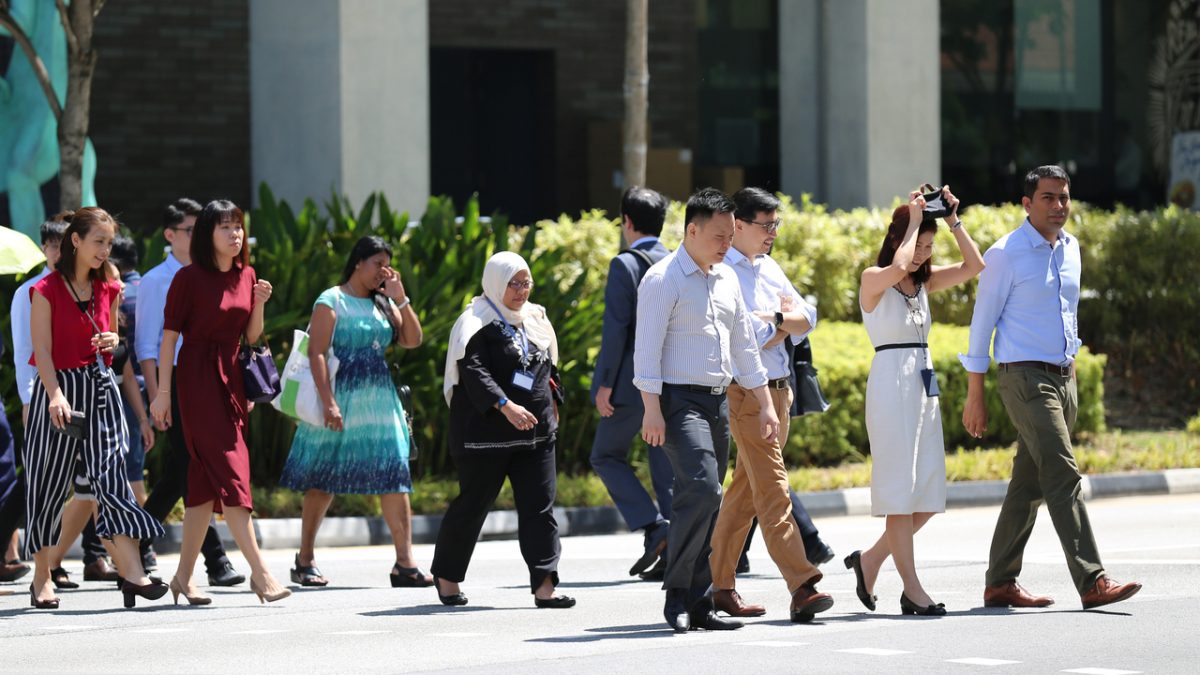1.Qualifying salaries, levies, and dependency ratios adjusted in E- & S-passes, and work permit
Employment pass (EP)
From September 2022, the minimum qualifying salary for new EP applicants will be raised from the current S$4,500 to S$5,000.
For the financial services sector, which has higher salary norms, this will be raised from the current S$5,000 to S$5,500.
The qualifying salaries for older EP applicants, which increase progressively with age, will also be raised in tandem.
For renewal applications, changes will be applied from September 2023 to give businesses sufficient time to adjust.
“Beyond the qualifying salary, we will refine how we assess EP applications, to improve the complementarity and diversity of our foreign workforce, and also to increase certainty and transparency for businesses,” Minister Wong added.
S pass (SP)
The minimum qualifying salary for SP applicants will likewise be raised, albeit in three phases.
In the first phase, the minimum qualifying salary for new SP applicants will increase from the current S$2,500 to S$3,000 in September 2022. There will also be a higher minimum qualifying salary of S$3,500 introduced for the financial services sector.
The qualifying salaries for older S Pass holders will similarly be raised in tandem.
The second and third phases will see the minimum qualifying salary for new SP applicants raised in September 2023, and again in September 2025.
“The specific salary values will be announced closer to the implementation date, based on the prevailing local wages then. Similar to EP, the changes will apply to renewal applications one year later, to give businesses time to adjust,” the Minister shared.
In addition to qualifying salaries, the number of SP holders will be regulated with sub-Dependency Ratio Ceilings and levies – whereby the Tier One levy will be raised from the current S$330 to S$650 by 2025.
2. S$500mn Jobs and Business Support Package for affected sectors, hiring of mature workers
As part of this package, a Small Business Recovery Grant will be provided for SMEs that have been most affected by COVID-19 restrictions over the past year, such as those in the F&B, Retail, Tourism and Hospitality sectors.
SMEs in the eligible sectors will receive a payout of S$1,000 per local employee, up to a cap of S$10,000 per firm. Local sole proprietors and partnerships in eligible sectors, as well as SFA-licensed hawkers, market and coffeeshop stallholders, who do not hire local employees, will also receive a S$1,000 payout.
In addition, workers who continue to face income loss due to COVID-19 can apply for the COVID-19 Recovery Grant, which has been extended to the end of 2022.
Minister Wong also shared that the Jobs Growth Incentive will be extended by six months, to September this year, with “stepped-down support rates reflecting the improved labour market conditions.”
This extension will cover those who face greater difficulty finding jobs, such as mature workers who have not been employed for six months or more, persons with disabilities, and ex-offenders.
3. Goods and Services Tax to increase to 9% by 2024
The Government will delay the planned Goods and Services Tax (GST) hike to 2023 and stagger the increase in two steps, Finance Minister Lawrence Wong said in his Budget speech on Friday (Feb 18).
The first increase from 7 per cent to 8 per cent will take place on Jan 1, 2023, and the second increase from 8 per cent to 9 per cent will take place on Jan 1, 2024.
4. Progressive wage model to be extended to more sectors in Singapore to financially aid lower-wage workers
Singapore’s progressive wage model (PWM) will not only be extended to the retail, food services, and waste management sectors, but also to in-house cleaners, security officers, landscape workers, administrators, and drivers across all sectors. This is to “do more to uplift lower-wage workers”, Minister Wong said.
5. Rise in personal income tax rates for top earners
The top marginal personal income tax rate will be increased, with effect from the year of assessment 2024, which is for income earned from 1 January 2023 to 31 December 2023.
Resident taxpayers’ chargeable income in excess of S$500,000 up to S$1 million will be taxed at 23 per cent, while income in excess of S$1 million will be taxed at 24 per cent.
This is up from the current 22 per cent tax levied on income in excess of S$320,000.
This increase in the top marginal personal income tax is expected to affect the top 1.2 per cent of personal income taxpayers and will raise S$170 million of additional tax revenue per year.
Singapore last raised its personal income tax rate for the top income tax bracket by 2 percentage points from 20 to 22 per cent, which took effect for the year of assessment 2017.

